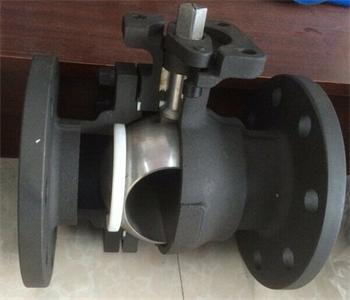What is the difference between Hard seal and soft seal of valve?

Soft seal valve
The sealing form is different, and the place of use is also different! In a nutshell
Soft seal is generally used for normal temperature and pressure pipelines, while hard seal is widely used for high temperature and pressure!
Hard seal valve
- In the structural mechanism, the hard seal is the seal between metal and metal, and the sealing ball and valve seat are all metal. Machining accuracy and technology are relatively difficult, generally used in high pressure. Soft seal is the seal between metal and non-metal, such as nylon tetrafluoroethylene, the manufacturing standard is the same.
- The soft and hard seal on the sealing material is for the sealing material of the valve seat. The hard seal is precisely processed with the valve seat material to ensure the matching accuracy with the valve core (ball), generally including stainless steel and copper. Soft seal means that the sealing material embedded in the valve seat is non-metallic material. Because the soft sealing material has certain elasticity, the requirements for machining accuracy are relatively low for hard seal.
- In terms of manufacturing technology, due to the complex working environment of many chemical and mechanical industries, many of them are high temperature and high pressure, with high friction resistance and strong corrosiveness of the medium. Now the technology has improved, the application of various materials is better, and the processing and other aspects can keep up with it, so that the hard sealed ball valve can be widely promoted. In fact, the principle of hard seal ball valve is the same as that of soft seal ball valve, only because of the sealing between metals, the hardness relationship between metals, working condition and medium should be considered. Generally, it is required to do hardening treatment, and the ball and valve seat should be continuously ground to achieve sealing. The production cycle of hard seal ball valve is long and the processing is complex. It is not easy to make hard seal ball valve.
- Generally, the soft seal can reach a high level, while the hard seal can reach a high level according to the requirements; the soft seal needs fire protection, because under high temperature, the material of the soft seal will leak, while the hard seal does not; the hard seal can generally do a high pressure, but the soft seal cannot; the soft seal cannot be used in some occasions due to the problems of the flowing medium Finally, hard sealed ball valves are generally more expensive than soft sealed ones. As for manufacturing, there is little difference between the two, mainly the difference between the valve seat. The soft seal is non-metal, and the hard seal is metal.
- The selection of soft and hard sealing ball valves is mainly based on the process medium, temperature and pressure. Generally, the medium containing solid particles or with wear or temperature higher than 200 degrees is the best choice for hard sealing. When the diameter is greater than 50, the valve pressure difference is large, and the valve opening torque is also considered. When the torque is large, the fixed hard sealing ball valve should be selected. The sealing grade of soft and hard sealing can reach 6 Class.




